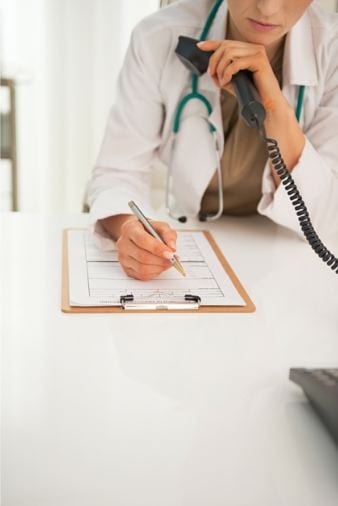How a Medical Answering Service Can Streamline Communication with Patients
 For someone facing a medical emergency, calling a doctor is literally like holding on to a lifeline.
For someone facing a medical emergency, calling a doctor is literally like holding on to a lifeline.
Unfortunately, medical emergencies don’t always strike when a doctor is available and during the working hours of a clinic or hospitable. This is where a medical answering service is handy.
An answering service for a medical establishment is essentially a 24×7 facility that keeps patients connected to their doctor. It replaces a receptionist who can guide patients and offer information and support depending on the situation. For many patients during a crisis, it is the reassuring human voice at the end of the line that instils and reaffirms faith in their doctor.
Answering services can contribute to your medical establishment in several ways:
Handle emergency situations: In such cases, a trained operator can determine if a patient is in an emergency situation and route the call directly to the doctor’s office. They can also register the patient’s symptoms and in some cases offer basic information to alleviate symptoms until an appointment can be scheduled.
Scheduling and reminding patients about appointments: Patients often have to schedule appointments months ahead. With such a long time gap it becomes necessary to reconfirm appointments and reschedule appointments if necessary. An answering service can help a doctor’s office with such logistical details.
Providing information and guidance: A medical answering service can ensure that a patient is fully prepared and updated before each appointment. Whether it’s going through necessary insurance paperwork, asking patients to bring blood work reports or giving them information on what to expect at the appointment, an answering service can ensure that a patient’s time is not wasted and that they comply with all the necessary protocols before each visit.
It is important to note that handling patients’ medical information requires skill and patience. Operators need to be aware of the necessary guidelines and etiquettes. Confidentiality and sensitivity is critical. A medical answering service must comply with the Health Insurance Portability and Accountability Act (HIPPA) and have the necessary systems in place to ensure that any information and data from a patient remains private and protected. Patients also need to be assured that any third party who is privy to their information is committed to ensuring confidentiality.
The medical sector is highly competitive and patients increasingly wish to engage with doctors who are available around-the-clock. With an answering service, a doctor can assure his or her patients that their needs are attended to and no call goes unanswered.

